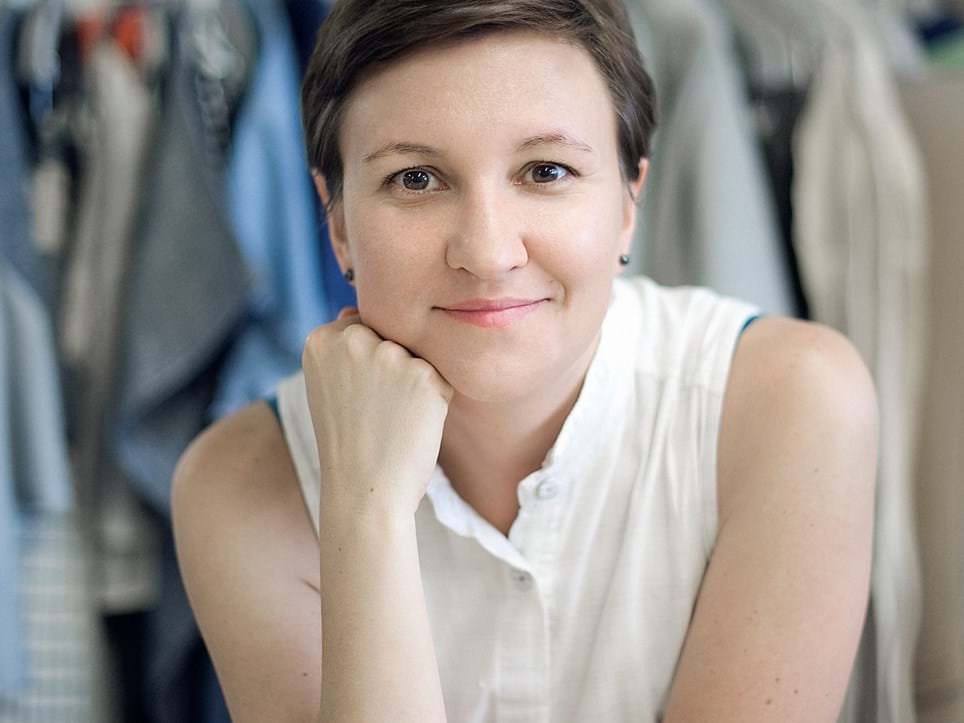Sustainability can be a murky term. It's broad and generally positive, but what does it actually mean when brands throw it around in their ambition to be relevant? And how do they dovetail with socially responsible business models, especially in the fashion industry where manufacturing and production has typically been the least transparent of the chain? Our favourite "sustainability" guru is Tara St. James, founder of STUDYNY, a longtime ethical contemporary womenswear label and more recently RE:SOURCE Library, a consulting firm to advise on the best sustainable textile, supply chain and sustainable strategy. As she's our go-to for any clarifications around sustainable practices, we asked her to give us the lowdown on what's happening this week...
What exactly IS fashion revolution week and why should we care?
Fashion Revolution is a global movement created by Orsola de Castro and Carry Somers after the Rana Plaza building collapse in 2013, killing 1134 people, most of whom were garment workers who were forced to go to work that day. The movement is made up of people who work in and love the fashion industry, but who want to see it become more transparent, more responsible and more ethical. We should care because we are all connected. That is evident now more than ever due to this [Pandemic] crisis, but it has always been the case. While there was very little tangible connection between the average consumer shopping for new product and the 80+ people involved in the supply chain of the average fashion item (from farmers, to weavers, dyers, sewers, shippers, etc...), we now see the impact of our decisions more clearly. Everyone plays a role in maintaining this very fragile industry and consumers have the power to make a big impact with their purchasing decisions. Fashion Revolution enables those decisions to be made with access to information.
Tara in her studio.
We're all staying safe at home - how do we actually use our power to help effect change while home?
Fashion Revolution makes participation really easy, from downloadable and printable visuals that anyone can post to their social profiles, to their recently released Transparency Index, a yearly ranking of the world's fashion brands and how they compare to one another (and how well they're doing with regards to people and the planet). But Fashion Revolution is a year-long endeavour that needs to be widely adopted by everyone all the time. While we're (hopefully) staying safe at home, there will be an increased temptation to shop online. In those moments, it's more important now than ever to be thoughtful and responsible. I'm not suggesting that people don't shop, but I do recommend asking the following before hitting the check-out button:
1. Do I really need this item? Do I already own something that could take work in its place?
2. Do I know how and where this item was made? If not, why not? Were people or the planet damaged in order to manufacture this item? Is there a sustainable, responsibly-made alternative to what I'm about to purchase? An alternative that could benefit rather than hurt communities and encourage regenerative agriculture.
3. Can I support my local community while shopping? Buying from the small wine shop around the corner or local farmers, who offer delivery service in order to stay in business, rather than big box stores
How do you think the ramifications of retail apocaplypse (with so many American Department stores about to declare bankruptcy, for example) will affect causes like Fashion Revolution Week?
The concept of fashion has been around for centuries and the need for it has become inextricably intertwined with human nature. Fashion isn't failing, but the industry is. The antiquated business models that prioritize profit at the detriment of humanity, the environment and culture, business concepts that are being stubbornly gripped by industry players despite their evident flaws, are being questioned by organizations like Fashion Revolution and Extinction Rebellion as well as fashion schools around the world. This current "retail apocalypse" is forcing the industry to look inside itself and question what's really working. This partnered with consumers who are demanding transparency means causes like FR are more important now than ever and will bring them to their well-deserved place in the spotlight (while they in turn shine a bright light right back at the industry). We are now seeing the delicate structure of a fragile industry that is being forced to reevaluate its own ethics and I believe it will turn to organisations operating within the industry - like Fashion Revolution - for guidance on how to reorient the direction of the ship.
Can you recommend three people or Instagram accounts we should follow to help us in our journey of transparency, responsible and conscious consumption?
Can you recommend three people or Instagram accounts we should follow to help us in our journey of transparency, responsible and conscious consumption?
Well, of course! Follow www.fashionrevolution.org/ and your local arm of the organisation (for example @fash_revusa if you're based in the US) to find out what you can do in your community/country.
Listen to the Wardrobe Crisis podcast by Clare Press who has a very varied list of guests who are creating change across all facets of the industry and beyond.
![]()

And lastly Re/Make, a community shedding light on issues in the fashion industry and pledging to put an end to fast fashion.

(Also I want to shout out All Birds who have recently announced that they will be publishing their carbon footprint for each product, a very forward thinking move that should be emulated by all brands!)
More More More!
+ We're celebrating Earth Day by championing these sustainable style staples...
+ From flip flops to medical shoes...
+ Surprise Me!












